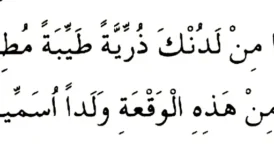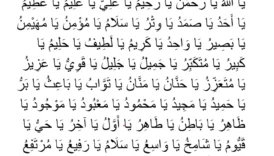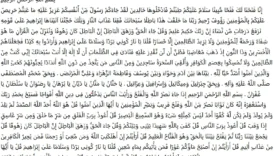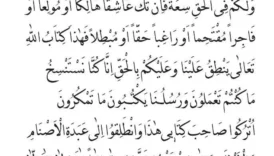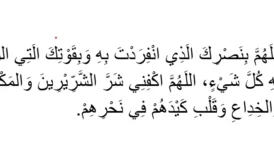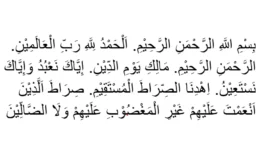Two Prophetic Supplications for Insomnia
During the time of the Prophet Muḥammad (peace be upon him), several Companions (*Ṣaḥābah*) experienced episodes of sleeplessness. In response, the Prophet (peace be upon him) taught them specific du‘ā’s (supplications) intended to help them find rest. Below are two such prayers, each sourced from classical ḥadīth and du‘ā’ compilations.
- Two Prophetic Supplications for Insomnia
- 1. First Du‘ā’: Addressing Insomnia (Reported by Khālid ibn al-Walīd)
- Reference
- Arabic Text
- Transliteration (Approx.)
- Approximate Meaning
- 2. Second Du‘ā’: Another Insomnia Remedy (Reported by Zayd ibn Thābit)
- Reference
- Arabic Text
- Transliteration (Approx.)
- Approximate Meaning
- 3. Understanding Insomnia from an Islamic Perspective
- 4. Important Sources
- 5. Concluding Advice
1. First Du‘ā’: Addressing Insomnia (Reported by Khālid ibn al-Walīd)
Reference
- Imam al-Tirmidhī, “Book of Supplications” (from the report of Khālid ibn al-Walīd, may Allah be pleased with him).
Khālid ibn al-Walīd approached the Prophet (peace be upon him) complaining of insomnia. The Prophet (peace be upon him) said, “I will teach you some words; when you recite them, you will rest comfortably.” Then he taught him the following prayer.
Arabic Text
اللَّهُمَّ رَبَّ السَّمَاوَاتِ السَّبْعِ وَمَا أَظَلَّتْ
وَرَبَّ الْأَرَاضِينَ وَمَا أَقَلَّتْ
وَرَبَّ الشَّيَاطِينِ وَمَا أَضَلَّتْ
كُنْ لِي جَارًا مِنْ شَرِّ خَلْقِكَ كُلِّهِمْ جَمِيعًا
أَنْ يَفْرُطَ عَلَيَّ أَحَدٌ أَوْ يَبْغِيَ عَلَيَّ
عَزَّ جَارُكَ وَجَلَّ ثَنَاؤُكَ
وَلَا إِلَٰهَ إِلَّا أَنْتَ
Transliteration (Approx.)
Allāhumma rabba’s-samāwāti’s-sab‘
wa mā aẓallat,
wa rabba’l-arāḍīna wa mā aqallat,
wa rabba’sh-shayāṭīni wa mā aḍallat,
kun lī jāran min sharri khalqika kullihim jamī‘an,
an yafruṭa ‘alayya aḥadun aw yabghiya ‘alayya,
‘azza jāruk,
wa jalla thanā’uk,
wa lā ilāha illā ant.
Approximate Meaning
“O Allah, Lord of the seven heavens and all they cover,
Lord of the earths and all they carry,
Lord of the devils and all they misguide,
be my Protector against the harm of all Your creation,
so that none of them oversteps against me or wrongs me.
Exalted is Your protection,
and sublime is Your praise,
and there is no god except You.”
2. Second Du‘ā’: Another Insomnia Remedy (Reported by Zayd ibn Thābit)
Reference
- Ibn al-Sunnī, ‘Amal al-Yawm wa’l-Laylah (transmitted from Zayd ibn Thābit, may Allah be pleased with him).
Zayd ibn Thābit said he once struggled with persistent insomnia and informed the Prophet (peace be upon him) of this difficulty. The Prophet (peace be upon him) taught him a specific du‘ā’. Zayd recounts that when he recited it, Allah removed his sleeplessness.
Arabic Text
اللَّهُمَّ غَارَتِ النُّجُومُ
وَهَدَأَتِ الْعُيُونُ
وَأَنْتَ حَيٌّ قَيُّومٌ
لَا تَأْخُذُكَ سِنَةٌ وَلَا نَوْمٌ
يَا حَيُّ يَا قَيُّومُ
أَهْدِئْ لَيْلِي
وَأَنِمْ عَيْنِي
Transliteration (Approx.)
Allāhumma ghāratin-nujūmu,
wa hada’atil-‘uyūnu,
wa anta Ḥayyٌ Qayyūmٌ,
lā ta’khudhuka sinatun wa lā nawmٌ,
yā Ḥayyُ yā Qayyūmُ,
ahdi’ laylī wa anim ‘aynī.
Approximate Meaning
“O Allah, the stars have slipped away,
and eyes have become calm.
Yet You are the Ever-Living (al-Ḥayy), the Sustainer (al-Qayyūm)—
neither drowsiness nor sleep overtakes You.
O Ever-Living, O Sustainer, bring peace to my night and rest to my eyes.”
3. Understanding Insomnia from an Islamic Perspective
- What is Insomnia (Uykusuzluk)?
- In modern medical terms, insomnia refers to difficulty in initiating or maintaining sleep, or poor-quality rest.
- Even Companions of the Prophet (peace be upon him) occasionally experienced such issues.
- Balancing Spiritual & Practical Solutions:
- Islam encourages combining spiritual remedies (such as these du‘ā’s) with practical measures.
- Chronic or severe insomnia may require consulting a healthcare professional in addition to reciting du‘ā’s.
4. Important Sources
- Tirmidhī, “Book of Supplications” (Kitāb al-Da‘awāt)
- Contains hadith from Khālid ibn al-Walīd, referencing the first du‘ā’ to ease sleeplessness.
- Ibn al-Sunnī, ‘Amal al-Yawm wa’l-Laylah
- Narrates Zayd ibn Thābit’s experience of insomnia and the second du‘ā’ taught by the Prophet (peace be upon him).
- Additional Hadith and Du‘ā’ Collections
- Similar prayers appear in other compendiums, often under “Night Prayers,” “Healing Supplications,” or “Mornings & Evenings.”
Note: These ahādīth underscore the idea that while spiritual practices are crucial, insomnia can also require addressing lifestyle, medical, or psychological factors.
5. Concluding Advice
- Sincerity and Focus: Recite these du‘ā’s from the heart, believing that ultimate relief is from Allah.
- Holistic Approach: Maintain a healthy bedtime routine: a calm environment, avoidance of stimulants, and consistent sleep schedule.
- Integration with Medical Advice: Chronic insomnia may necessitate professional consultation; the Prophet (peace be upon him) encouraged seeking both spiritual and practical remedies.
May Allah grant everyone a peaceful night’s rest and alleviate any discomfort or distress associated with sleeplessness.
